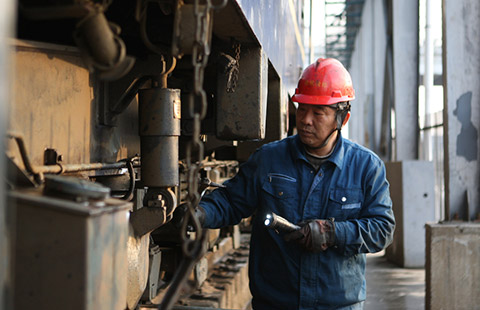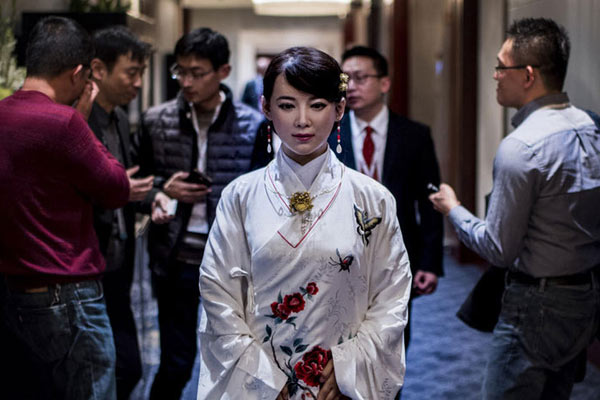Chinese economy likely to hit bottom in 2017: economist
BEIJING -- The Chinese economy is likely to hit bottom in 2017 as several factors will combine to support the bottoming process, a Chinese economist said Saturday.
If investment, supply-side structural reforms and the fostering of new growth momentum achieve desired results, there is a high probability that the economy may bottom this year, said Wang Yiming, deputy director of the development research center of the State Council.
On the demand side, manufacturing investment is on the up, while infrastructure spending will remain strong, which mean overall investment will stabilize in 2017, he said.
If China's capacity-cut targets are solidly delivered, producer prices will keep going up to support the broader economy, while new technologies and new business models will help cultivate fresh growth momentum, Wang pointed out.
Buoyed by increased government spending on infrastructure and booming home market, the economy held steady against rising headwinds, with GDP expanding stably at 6.7 percent in each of the first three quarters of the year.
Xu Shaoshi, director of the National Development and Reform Commission, the top economic planner, said earlier this month that he estimated that the economy would keep the same growth rate for the full year.
The World Bank on Tuesday kept its forecast for China's economic growth rate for 2017 at 6.5 percent, saying that the economy will continue sustainable growth as it is rebalancing from manufacturing to services, despite reemerging concerns for property markets.
If investment, supply-side structural reforms and the fostering of new growth momentum achieve desired results, there is a high probability that the economy may bottom this year, said Wang Yiming, deputy director of the development research center of the State Council.
On the demand side, manufacturing investment is on the up, while infrastructure spending will remain strong, which mean overall investment will stabilize in 2017, he said.
If China's capacity-cut targets are solidly delivered, producer prices will keep going up to support the broader economy, while new technologies and new business models will help cultivate fresh growth momentum, Wang pointed out.
Buoyed by increased government spending on infrastructure and booming home market, the economy held steady against rising headwinds, with GDP expanding stably at 6.7 percent in each of the first three quarters of the year.
Xu Shaoshi, director of the National Development and Reform Commission, the top economic planner, said earlier this month that he estimated that the economy would keep the same growth rate for the full year.
The World Bank on Tuesday kept its forecast for China's economic growth rate for 2017 at 6.5 percent, saying that the economy will continue sustainable growth as it is rebalancing from manufacturing to services, despite reemerging concerns for property markets.
Related Stories
Most Viewed in 24 Hours
















